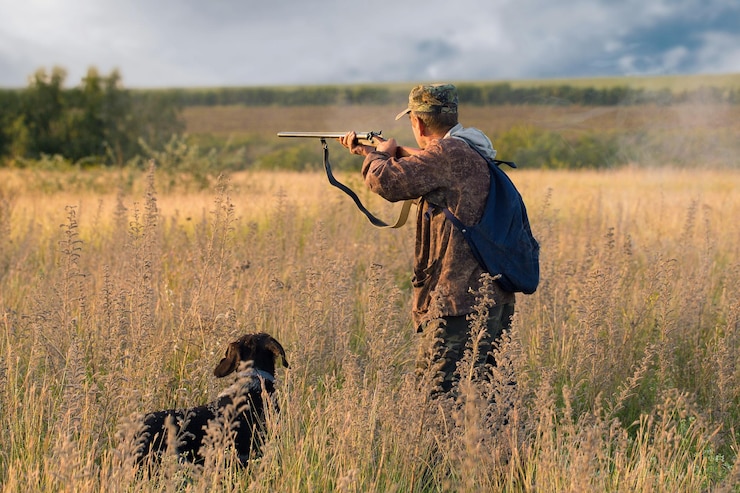- Hunting Regulations:
South Africa has specific regulations in place regarding legal hunting. It is crucial for hunters to familiarize themselves with these regulations to ensure compliance with the law. The regulations cover aspects such as hunting seasons, permitted species, hunting methods, bag limits, and licensing requirements. - Licensing and Permits:
Hunters in South Africa must obtain the necessary licenses and permits before engaging in any hunting activities. These permits are issued by the relevant provincial authorities and may vary depending on the type of game and the hunting area. It is important to adhere to the specific requirements and obtain the appropriate permits for the desired hunting activities. - Protected Species:
South Africa has a diverse range of wildlife, some of which are protected under national and international conservation laws. It is crucial for hunters to familiarize themselves with the list of protected species to ensure they do not hunt any protected animals. Hunting protected species can lead to severe penalties, including fines and imprisonment. - Professional Hunter:
To legally hunt in South Africa, individuals must be accompanied by a registered professional hunter. Professional hunters are experienced guides who understand the hunting regulations, ethics, and safety protocols. They play a vital role in ensuring the hunting activities are conducted responsibly and within the legal framework. - Conservation and Sustainability:
Hunting in South Africa is tightly regulated to promote conservation and sustainability. The fees generated from hunting licenses and permits contribute to wildlife conservation efforts, habitat protection, and community development. Legal hunting is seen as a tool for sustainable wildlife management and helps maintain healthy ecosystems. - Trophy Hunting:
Trophy hunting, where animals are hunted for their parts or for sport, is legal in South Africa. However, it is strictly regulated, and hunters must comply with the guidelines set by the authorities. The hunting of certain species may be restricted or subject to quotas to ensure their populations remain stable. - Canned Hunting:
South Africa has taken steps to regulate and restrict the practice of canned hunting. Canned hunting refers to the hunting of captive-bred animals within enclosed areas, which can be seen as unethical. While some captive-bred hunting is allowed, there are strict regulations in place to prevent abuse and ensure fair chase principles. - Firearms and Ammunition:
Hunters in South Africa must comply with the country’s firearms and ammunition laws. A valid firearm license is required, and firearms must be registered and used strictly for hunting purposes. It is essential to follow all safety guidelines and store firearms and ammunition securely when not in use. - Hunting Ethics:
Responsible hunting practices and ethical behavior are strongly encouraged in South Africa. Hunters are expected to pursue fair chase principles, respect wildlife, and avoid wastage of harvested animals. It is crucial to follow ethical guidelines and exercise empathy and respect for the natural environment. - Hunting Outfitters:
It is advisable to engage the services of reputable hunting outfitters in South Africa. These outfitters are experienced in organizing legal and ethical hunting safaris. They can assist with obtaining the necessary permits, provide professional guides, and ensure that hunting activities adhere to all regulations and guidelines.
Please note that while this information provides a general overview, it is always essential to consult the latest South African hunting regulations and seek advice from the appropriate authorities or professional hunting organizations to ensure compliance with the current laws and requirements.
Join 'Farmers Mag' WhatsApp Channel
Get the latest Farming news and tips delivered straight to your WhatsApp
CLICK HERE TO JOIN






